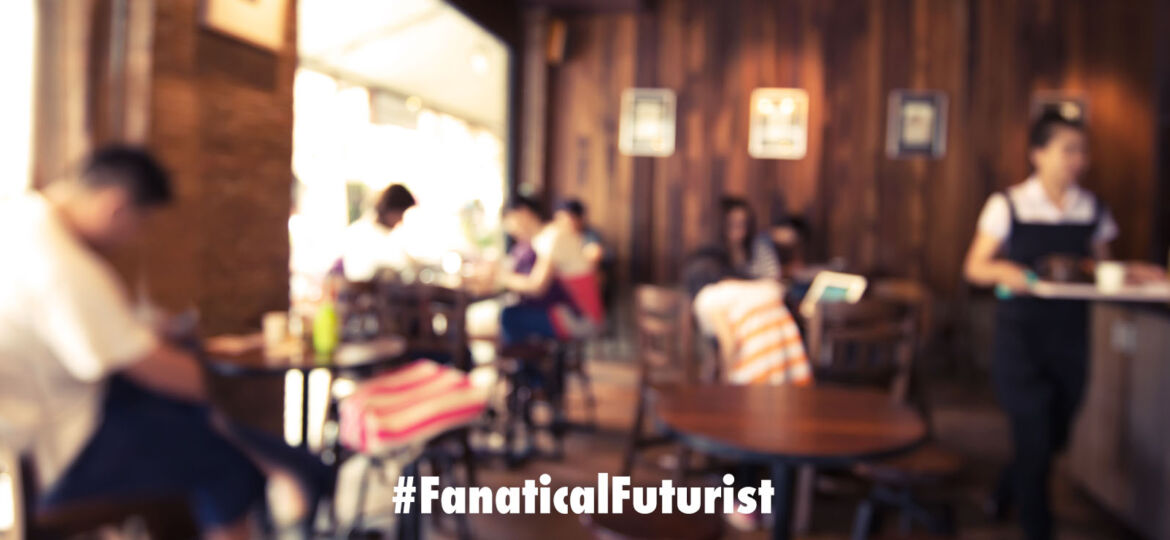
WHY THIS MATTERS IN BRIEF
Covid-19 has been a big boost for robots, and now they’re taking over coffee shops.
 Interested in the Exponential Future? Connect, download a free E-Book, watch a keynote, or browse my blog.
Interested in the Exponential Future? Connect, download a free E-Book, watch a keynote, or browse my blog.
The current Coronavirus pandemic, Covid-19, has been a boon for the rapid testing and development of a whole new raft of exponential technologies, from AI’s that are helping find vaccines and drones being used to identify infected people, through to robots being used to look after patients in hospitals and self-driving cars being used to make vital food deliveries. Now though, as the world dares to think about coming out of lock down businesses are having to think about how they can open their doors, comply with social distancing rules, and help prevent the spread of the virus.
Businesses in South Korea are a case in point, and as the country opens back up again they’ve been getting creative to ensure their customers are safe, and as a case in point a café in Daejon has just hired a robot barista to take care of making and busing drinks around, Reuters reports.
Thanks to the robot, the café only has to employ a single human, who takes care of making pastries, as well as servicing and refilling their robot co-worker. The robot can make 60 different types of coffee and deliver them to customers around the café.
The company behind the robot, Vision Semicon, is hoping its fleet of mechanical workers could help while South Korean society adjusts to what officials are calling “distancing in daily life” — the next phase of the government’s efforts to relax social distancing rules.
“Our system needs no input from people from order to delivery, and tables were sparsely arranged to ensure smooth movements of the robots, which fits in well with the current ‘distancing campaign,” Lee Dong-bae, director of research at Vision Semicon, told Reuters.
The downside of all these trials and tests though means that automation systems like these, after the pandemic has subsided, could become the norm, and in South Korea’s case push their unemployment rates, which in April saw its largest increase since 1999, even higher.
Source: Reuters
















